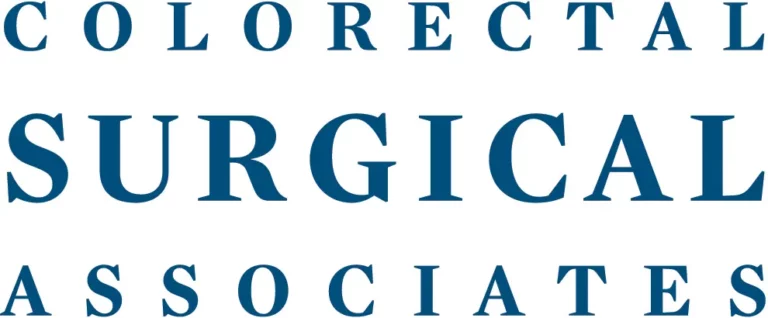Colorectal Surgical Associates
A Subsidiary of Evansville Surgical Associates
Specialized Care in the Tri-State Region
Advanced Technology
Close to Home
Expert Care
What Is Colorectal Surgery?
Colorectal surgeons are experts in the treatment of conditions affecting the bowels, colon, and rectum. While colon and rectal problems may seem like a sensitive topic to you, we talk about it everyday. This is our specialty, and we strive to put you at ease and help you feel as comfortable as possible. Though we’re the Colorectal Surgical Associates, most of our patients do not require surgical intervention to improve or maintain their health.
CSA doctors also play a significant role in the screening, prevention, and treatment of colorectal cancer. Colon cancer is on the rise in the U.S., particularly among adults under 50. Our specialized technology and extensive clinical experience help us spot early warning signs sooner than a general practice. For those with a diagnosis, studies have shown significantly higher survival rates for patients under the care of a colorectal specialist rather than a general surgeon.
If you’re in pain, or if a colorectal issue is impacting your daily life, we can help. Call us for a private consultation to answer your questions and discuss your next steps.
Conditions We Treat
If you have chronic abdominal pain, blood in your stool, or sudden changes in your bowel habits, it could be a sign of a colorectal problem. Trust your gut (literally!) and don’t delay in scheduling an appointment.
Our specialists are certified by the American Board of Surgery and the American Board of Colon and Rectal Surgery. Every day we perform routine screenings and examinations on a variety of conditions affecting the colon, rectum, and anus.
Meet Our Doctors

Deane L. Smith II MD, FACS

Heather Matheson MD, FACS
Conditions We Treat
- Abdominal Pain
- Anal Cancer
- Anal Fissure
- Anal Fistula
- Anal Stenosis
- Bowel Obstruction
- Colon and Rectal Polyps
- Colon Cancer
- Constipation
- Crohn’s Disease
- Diarrhea
- Diverticulitis
- Fecal Incontinence
- GI Bleeding
- Hemorrhoids
- Irritable Bowel Syndrome
- Pilonidal Disease
- Pruritus Ani
- Radiation Injury
- Rectal Abscess
- Rectal Cancer
- Rectal Pain
- Rectal Prolapse
- Rectocele
- Rectovaginal Fistula
- Stoma Complications
- Ulcerative Colitis
Testimonials
Your Questions, Answered
Colon health isn’t the easiest thing to talk about. We get that. You may feel frustrated, confused, or embarrassed by your condition, and you may have tried every at-home remedy you could think of before turning to a doctor.
At CSA, we welcome your questions. You’ll find compassionate care providers with specialized expertise in treating conditions just like yours. Your comfort is our priority.


Screenings for Early Detection
According to the American Cancer Society, there are more than 150,000 new cases of colorectal cancer diagnosed in the United States each year. The earlier treatment begins, the better the outcome.
Preventive screenings can detect colorectal polyps before they become cancerous. Adults at an average risk for cancer should receive regular screenings beginning at age 45.
Minimally Invasive
We’re the first to admit it — most people don’t associate “colonoscopy” with “minimally invasive.” Yet colorectal medicine is a quickly developing field, and CSA invests in the latest advancements to give you superior results with the lowest discomfort possible.
Many surgical techniques have greatly improved in the last decade so what used to be an involved procedure now involves smaller incisions and shorter recovery times. Call us today for a consultation.

Our Locations
-
St. Vincent
801 St. Mary's Drive
CampusSuite 200 East
Evansville, IN 47714 - (812) 424-8231
-
Monday-Friday 8:00am - 4:30pm
- Get Directions
-
Deaconess Gateway Hospital
4133 Gateway BlvdSuite 290 MOB 5
Newburgh, IN 47630 - (812) 424-8231
-
Monday-Friday 8:00am - 4:30pm
- Get Directions
Frequently Asked Questions
You do not need a referral to schedule an appointment with CSA, although most of our patients have been referred by a primary care physician or a gastroenterologist. Some insurance carriers will only cover an appointment if you’ve been referred to a specialist. We advise you to check first with your insurance company if you plan to make an appointment without a referral.
Most patients are able to resume normal activities within 24 hours of a routine screening or colonoscopy. Full recovery from a surgical procedure typically takes several weeks. We will discuss the recovery timetable during your preoperative appointment.
Depending on your exact procedure, colorectal surgeries do typically require a hospital stay of several days. When you consult with CSA to discuss your surgical options, we will help you prepare for pre- and post-operative procedures as well as your recovery at home.
We will give you instructions on any required dietary restrictions prior to your colorectal procedure. Typically, your diet is only impacted on the day before your procedure. After surgery, we recommend a soft diet for the first 2-6 weeks.
Most health insurance plans cover preventative screenings for colorectal cancer for adults above the age of 45. Please call our office to review the specific details of your insurance coverage.
For general information, we recommend the resources available through the American Society of Colon & Rectal Surgeons. If you have questions about your specific condition, please contact your doctor.

